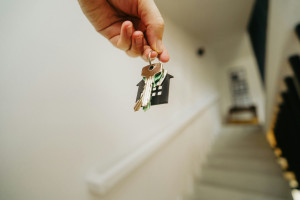A pre settlement inspection is the final inspection carried out by the buyer of a property before settlement occurs. It can be referred to as a pre-settlement inspection, final inspection, or even an inspection before completion.
If there is a sales agent involved in the sale of the property, then this is usually arranged directly between the buyer and the sales agent.
Carrying out a final inspection before settlement is a very important but sometimes overlooked component of any property purchase. This article sets out the reasons why the final inspection is important.
What is a conveyancing settlement?
The settlement date or the completion date means the date that the conveyancing contract is due to be completed by the parties. We use these words to refer to the time when the balance of price of the property is paid by a buyer to a seller, adjustments under the contract are made such as for council rates, waters rates and strata levies (if a strata property), and the keys are handed over from the seller to the buyer.
Property purchased on an “as is” basis
An “exchange of contracts” occurs when the parties sign identical contracts, date them, exchange counterparts, and then the purchaser pays a deposit as security for its contractual obligations. It is the point at which most contracts become legally binding.
Most conveyancing contracts state that the purchaser accepts the property in its condition at the date that the purchaser and the vendor exchanged contracts.
Normally, provisions in the contract allow for exceptions to this, being fair wear and tear, or the mechanical breakdown of old inclusions between the date that contracts are exchanged, and settlement of the contract. It is important to check your contract or have your solicitor or conveyancer check your contract so that they can explain your rights to you.
Most contracts provide that the seller does not warrant the state, condition or repair of the property, its fixtures or inclusions, and that buyers purchase property on a buyer-beware basis. This means that the property, its fixtures, fittings, and inclusions are purchased subject to their state, condition and repair as at the contract date.
It is important for buyers to check this before they sign a contract and contracts are exchanged.
When should the final inspection happen?
Most conveyancing contracts in New South Wales state that the buyer can carry out one inspection of the property within the three business days prior to the settlement date.
On the date for completion, the following things typically must happen:
The seller vacates the property, if not done so already.
Balance of sale proceeds are paid by the buyer to the seller.
If the seller has a mortgage, it must be paid out from the sale proceeds.
If the buyer has a mortgage, their bank will provide funds for the purchase.
Adjustments of rate and levies are made.
Title of the property is transferred to the buyer.
The buyer becomes responsible for insurance of the property.
The vendor hands the keys over to the purchaser.
What should I look out for during the final inspection before settlement NSW? Is there a final inspection checklist?
There is no official final inspection checklist as it will depend on the unique characteristics of the property, however in most cases, the following list will cover most of the things that a property buyer should check before settlement.
1. State of condition and repair
A purchaser should check that the property is in the same state of condition and repair as it was at the date contracts were exchanged.
2. Inclusions
3. Excluded items
4. The property in general
5. If the seller is leaving
If you are getting the property with vacant possession (no person to be occupying the property on settlement), then look for indications that the seller or the person occupying the property such as a tenant, will vacate by the time that settlement is scheduled for on the settlement date.
6. Keys
Ensure that keys are available and have been handed to the selling agent, if there is an agent involved. If the owner is selling to you directly, make sure you check that all keys exist and arrange a handover of all the keys on settlement from the seller directly.
7. Rubbish and ad hoc items
Always check garages, storage areas, and sheds. This is typically, where people find where most of the items and rubbish which has been left by the sellers.
8. Cleaning
What can I do if I find issues at the property during the final inspection?
If you find a problem or an issue at your final inspection, you must seek advice from your property lawyer or conveyancer before settlement and notify them as soon as you become aware of the issue.
After your inspection, it is always a good idea to also communicate the issues with the real estate agent as they are normally present at this inspection.
How to fix an issue identified in your inspection
Speak with your property lawyer or conveyancer as soon as you are aware of the issue and before settlement. The contract will typically dictate the procedure for dispute resolution, and there may be critical time periods that apply.
Conclusion
There are many reasons why a final inspection is important to carry out before settlement. It is often best practice to arrange for the inspection to take place as close to settlement as possible, and it is often done on the morning of settlement. It’s also important that this is booked in with the vendor or vendor’s agent well in advance, so that you don’t miss out on your opportunity to inspect.
If you do not do a final inspection, then you are putting yourself at risk of receiving the property in a condition that you did not expect, damage may have been done, or perhaps you might even find that the seller is still in the property when you open that front door after settlement!












